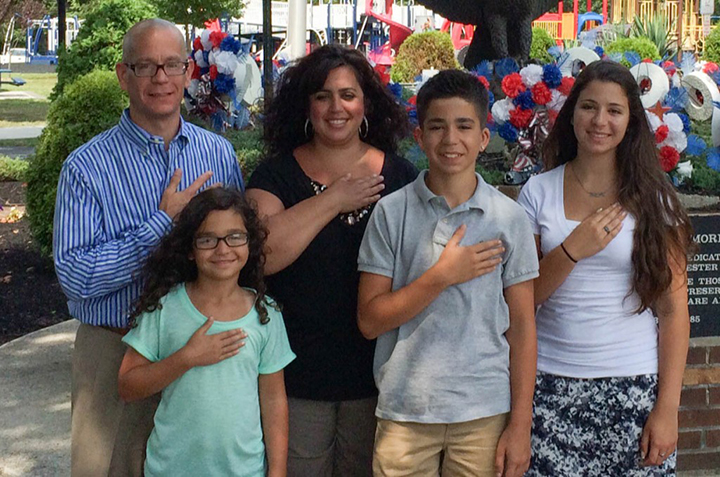
While legal battles are brewing to further remove any mention of God in public, one New Jersey student and her family is filing a lawsuit to keep the words "under God" in the Pledge of Allegiance.
After a Monmouth, New Jersey family, only referred to as John and Jane Doe in court papers, in conjunction with the American Humanists Association, sued the Matawan-Aberdeen Regional School District back in February to remove "under God" from the Pledge of Allegiance, New Jersey high school student Samantha Jones fired back with a lawsuit of her own.
The Highland Regional High School student and her family, with representation by the Becket Fund for Religious Liberty, is challenging the removal of the key words from the pledge.
"The phrase 'one nation under God' sums up the history and values that make our country great," Jones said during a video interview with Fox News.
"When I stand up, put my hand over my heart and say the Pledge of Allegiance, I am recognizing that my rights come from God, not from the government," the student continued on the Becket website. "If anyone wants to remain silent, that is their right. But it is not their right to silence me."
The school points out that no child is forced to recite or even stand for the pledge, and Superior Court Judge David Bauman says that there was no evidence that the athiest child who first filed the lawsuit in February had been "bullied, ostracized or in any way mistreated." Further questioning of district attorney David Rubin revealed that the school district's policy dictates that parents must provide a written note to explain why a child can't say the pledge with the rest of the class, but to his knowledge, that explanation clause has never been refused or challenged.
The school district claims to be following a state-mandated law requiring schools to recite the pledge daily, but the district says that plaintiffs can't claim a violation of equal protection laws since students aren't forced to say the pledge and recite the words.
"Removing the 'under God' or changing the patriotic exercise to something that's more inclusive would not infringe on anyone's rights," added David Niose of the American Humanist Association. "Your religious freedom involved your right to believe and worship and pray as you wish, but it doesn't involve the right to have the state sponsor something that takes a side on a religious question."
The phrase "under God" was added to the pledge in 1954, but the Jones family's lawsuit contends that it is still their right to say it in its full form. Other states battling the same types of lawsuits are discovering new ways to circumnavigate the arguments any way they can. For example, in May, the Massachussetts high court ruled that the words "under God" have more to do with patriotism than religion.
Athiest activist Michael Arthur Newdow has been fighting to get 'under God' taken out of the nation's public schools for several years, and lost a lawsuit that pushed to stop the invocation prayer at President Bush's second inauguration ceremony. He also filed a suit to prevent any references of God in President Obama's inauguration.
Judge Bauman has yet to issue a ruling on the school district's motion to dismiss the removal lawsuit as both the American Legion and the Knights of Columbus have joined the suit in support of the district.














